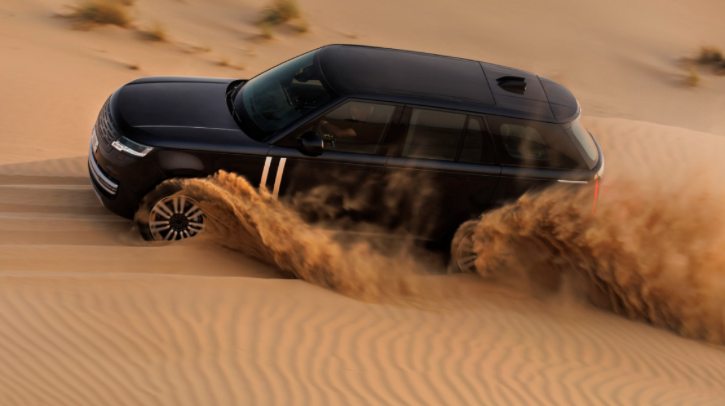The highly anticipated Range Rover Electric is nearing production: its prototypes are currently undergoing rigorous testing in one of the world’s most unforgiving climates in the United Arab Emirates.
The SUV’s performance and efficiency are being challenged to ensure the electric propulsion system is reliable and offers longevity and optimum range. The brand is subjecting its newest thermal management system to repeated testing in temperatures of 50C and up to 90% humidity. This also includes dynamic desert climbs to sun-soaked city cycles.
Land Rover says the Range Rover Electric delivers impressive results, surpassing the thermal testing performance recorded by any Range Rover on sand. It also reports that exemplary thermal performance was maintained throughout intensive and prolonged desert driving.
Thomas Müller, JLR’s executive director of product engineering, said, “A hot climate is one of the most challenging for any battery electric vehicle, because of the need to cool the cabin and optimize battery performance at the same time. The additional challenge of driving on sand requires controlled low-speed torque, so our specially developed traction control and thermal management systems work in harmony to help ensure power delivery is unaffected. Our tests have shown that in this climate, repeatedly driving the equivalent of 328ft [100m] uphill on fine sand, Range Rover Electric matches the performance of its ICE equivalents – in some instances even surpassing them – thanks to the introduction of these new features.”
The electric Range Rover features an intelligent drive system and advanced terrain response to create a seamless experience beyond Dubai’s sprawling metropolis and into the deserts. The balanced weight distribution and advanced suspension system are designed to maintain control and stability through the sand; traction systems help with instant torque, allowing for quick acceleration and responsiveness.
The SUV also gets an intelligent torque management system that distributes the wheel slip management directly to each individual electric drive control unit, reducing the torque reaction time from around 100 milliseconds to 1 millisecond.
Range Rover says the electric flagship has excelled during this stage of development. The British brand will open its order books in 2025.


